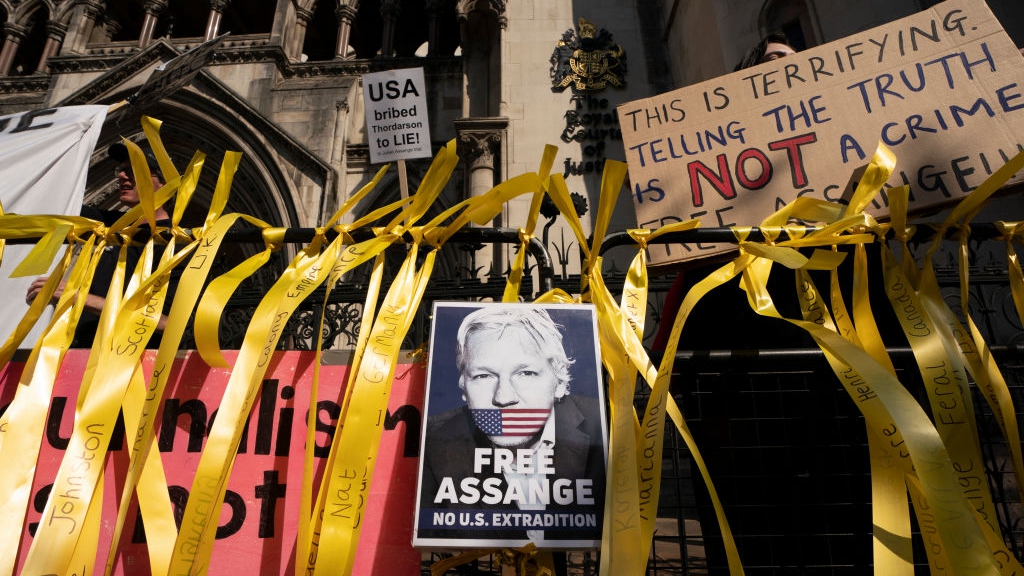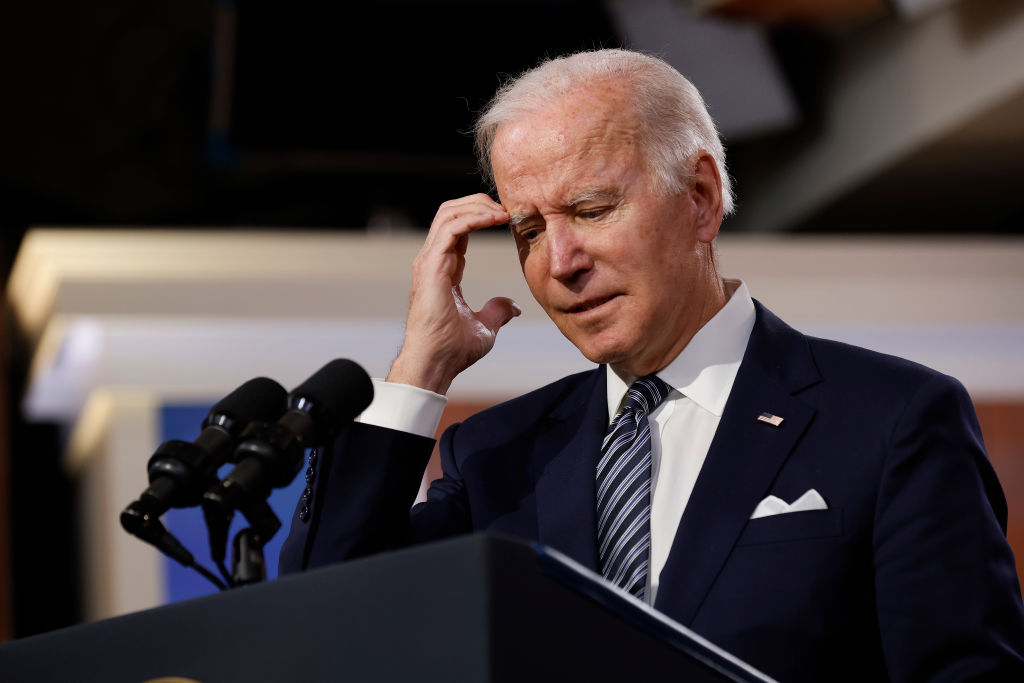
Supporters gather outside as the High Court hears a U.S. appeal in the extradition of WikiLeaks founder Julian Assange, at Royal Courts of Justice, Chancery Lane in London, England, August 11, 2021. /Getty
Supporters gather outside as the High Court hears a U.S. appeal in the extradition of WikiLeaks founder Julian Assange, at Royal Courts of Justice, Chancery Lane in London, England, August 11, 2021. /Getty
Editor's note: Bradley Blankenship is a Prague-based American journalist, political analyst and freelance reporter. The article reflects the author's opinions and not necessarily the views of CGTN.
One day before the U.S.-hosted "Summit for Democracy," Secretary of State Antony Blinken tweeted that "more than 350 journalists are currently imprisoned for their work," which netizens responded to with comments and photos about WikiLeaks founder Julian Assange. He is now set to be extradited to the U.S., unless an appeal by his legal team is successful, for a litany of alleged crimes.
Officially, Assange stands accused of 18 federal counts in the United States, including illegally obtaining and sharing classified material related to national security, but the crime he committed that was deemed so unacceptable was the fact that his organization exposed U.S. war crimes. For this, Assange was trapped in the embassy of Ecuador in London for nearly seven years before being handed over to British authorities.
He has since languished in the UK's Belmarsh Prison awaiting extradition to the United States for these trumped-up charges as his mental health deteriorates under the harsh conditions. This is actually the reason why his extradition was denied the first time because his mental health is in such a bad state that Judge Vanessa Baraitser believed it would be "oppressive" given the condition of U.S. maximum-security prisons.
For example, the U.S. makes promiscuous use of solitary confinement, a UN-recognized form of torture that it used on Chelsea Manning, the whistleblower that collaborated with Assange to expose U.S. war crimes. WikiLeaks itself has actually revealed such torture methods used by the United States for the public.
The UK court finally granted Assange's extraditions based on "four assurances," namely that he would not be made the subject of "special administrative measures" (torture), would not be held at a maximum-security prison before or after trial, that he would be allowed to be transferred to Australia if convicted and that he would receive "appropriate clinical and psychological treatment."
However, these guarantees are probably not worth the paper on which they're written. The U.S. lies all the time and will do anything to cover its tracks, including kidnap journalists and diplomats. Top officials in the Trump White House were even found to have seriously considered assassinating Assange.
Even if the administration of President Joe Biden makes such guarantees, who's to say the next president wouldn't scrap them? And, if that were to be the case, would anyone be able to stop them?

U.S. President Joe Biden answers reporters' questions in the Eisenhower Executive Office Building in Washington, D.C., December 10, 2021. /Getty
U.S. President Joe Biden answers reporters' questions in the Eisenhower Executive Office Building in Washington, D.C., December 10, 2021. /Getty
Of course, this misses the whole point in the first place that journalists should not be kidnapped in the first place for telling the truth and exposing war crimes. Assange's extradition on the final day of the two-day "Summit for Democracy" is perhaps the most emblematic event for exactly the kind of democracy America is promoting around the world, a hollow "democracy" on its terms.
America wants the world to be "democratic," but it has to be a form of democracy that prioritizes the interests of the ultra-wealthy and privileged instead of ordinary people. Sure, every country should have the "sovereignty" to ally with whoever they want but only as long as they choose America. And of course, America values "freedom of speech" but as long as you don't expose U.S. war crimes or expose corruption.
To be clear, this last part is what the Assange trial has been about. It is a dangerous precedent that sets up people from all over the world to be kidnapped and tortured if they happen to expose uncomfortable truths about the U.S. government. It also means, if indeed it turns out to be the case, that outlets can be successfully prosecuted for publishing leaked documents, that investigative journalism as a field will basically be over.
One major discussion at the "Summit for Democracy" was about how media outlets can "promote democratic values." However, this makes no sense fundamentally if journalists are barred from discussing abuses by the world's most powerful hegemon. The U.S. often talks about "objective" moral principles yet instills a cynical moral relativism where bad things become good things when America does it, of course, because America is the exception.
The reality, however, is that democracy is not about pulling a lever every four years to pick between one of two wings of the same corporate oligarchy, nor is it having a wide selection of consumer goods from a handful of monopolies. It's about transparency and accountability. Assange's extradition to the U.S. proves that there is no transparency or accountability in America.
(If you want to contribute and have specific expertise, please contact us at opinions@cgtn.com.)

